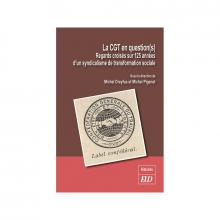CfP: 50th Annual Conference of the IALHI. Archives and libraries as actors in commemorative culture
50th ANNUAL CONFERENCE OF THE INTERNATIONAL ASSOCIATION OF LABOUR HISTORY INSTITUTIONS (IALHI)
Fundación Pablo Iglesias, Alcalá de Henares, Spain
September 11-14, 2019
Archives and libraries as actors in commemorative culture
Call for papers


